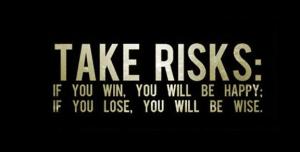Let’s face it, closing the sale is the end game for every sales person. And while we’re at it, let’s face another truth – it’s also the most difficult part of selling. But that doesn’t have to be the cace. A lot of the time, difficulty in closing a sale is only perceived to be much more difficult than it truly is. While every case is different, here are three things to keep in mind that’ll help you close that pesky sale.
Focus on the Customer Problem – The best sales people aren’t out there pounding the pavement just mindlessly pushing their product or service in front of people. The best sales people are the ones that actively listen to their prospects and try to understand their problem first. More importantly, they understand that what you’re trying to sell simply can’t solve their problem. This is truly what will set you apart from the rest! Take the time to actively listen and discuss the problem that they’re having. Prep yourself with some questions to ask to learn about their problems, like “what would you like to focus on improving during the next few months” or even a straight to the point question of “what’s the biggest problem your department is currently dealing with?” You’ll lose hard earned rapport if you just present a solution without listening to the problem. If they feel as though you genuinely want to solve their problem, I guarantee that they’ll be more likely to want your product.
Develop a Relationship – People don’t like being sold to, so don’t treat a prospect like just another target. If you’re thoroughly trying to solve a potential customer’s problem though, this shouldn’t be too difficult. It’s extremely rare that you’ll be able to close any deal from just one meeting or phone call. This means that you’ll need to keep in touch with the prospects who show interest, or who you truly believe that you’ll be able to solve their problems with your product or service. By regularly keeping in contact and paying attention to the conversations that you have, you’ll be able to pick up on some little details about their life that you’ll be able to bring up again in regular conversation. These little gestures will mean a lot when it comes to closing a sale, because I know from experience that people are far more likely to buy something from someone who asks “how was your daughter’s dentist appointment” instead of someone who clearly doesn’t care about you.
Ask For It! – As like with many things in life, it’s extremely rare that you’ll simply be handed something without working or asking for it. There have been many instances where my sales team is lamenting the fact that they were discussing a sale with a potential customer for a long time, but it just didn’t work out. Then I ask if they actually asked for the sale, and they almost always say no. This ties back into an old blog post I had about fear, and it’s almost always fear of rejection that makes people not simply ask them if they want to buy what you’re selling. If you’ve been focusing their problem and have developed a great relationship with them, the results will almost always be positive.
Does this closely follow what you’re currently doing? If not, what steps are you taking to make sure that you close the sale? I’d be very interested to hear your techniques in the comments.

 24 hours in a day – to some people it seems like that’s never enough to accomplish anything, but then there are the people who seem like they can get everything done in that time, plus still have time for their family, friends and a million other personal tasks. Your gut reaction might be to be envious of these people, but it’s not as if they’re cheating and getting an extra hour from somewhere. We ALL have 24 hours to make the most out of, which means that it really just comes down to time management.
24 hours in a day – to some people it seems like that’s never enough to accomplish anything, but then there are the people who seem like they can get everything done in that time, plus still have time for their family, friends and a million other personal tasks. Your gut reaction might be to be envious of these people, but it’s not as if they’re cheating and getting an extra hour from somewhere. We ALL have 24 hours to make the most out of, which means that it really just comes down to time management. Surely you’ve heard people mention in passing that they live by a “code”, but what does that mean exactly? While I could delve into many different territories here, something that I believe all “codes” follow is that they set certain standards and expectations.
Surely you’ve heard people mention in passing that they live by a “code”, but what does that mean exactly? While I could delve into many different territories here, something that I believe all “codes” follow is that they set certain standards and expectations. As entrepreneurs we generally want control of everything within our company, which means that when someone hands something off to us “yes” is the first thing that usually comes. That isn’t always a good thing because when you say yes without really thinking about it, things don’t always work out.
As entrepreneurs we generally want control of everything within our company, which means that when someone hands something off to us “yes” is the first thing that usually comes. That isn’t always a good thing because when you say yes without really thinking about it, things don’t always work out. The summer holidays are winding down, meaning that the hustle and bustle of regular office life will be coming back into most organizations come September. Our offices here at the
The summer holidays are winding down, meaning that the hustle and bustle of regular office life will be coming back into most organizations come September. Our offices here at the  Entrepreneurs are known as risk-takers. Whether the risk involves investing a large sum of money into a new venture or hiring a new employee, it’s critical to evaluate whether the risk is worth taking.
Entrepreneurs are known as risk-takers. Whether the risk involves investing a large sum of money into a new venture or hiring a new employee, it’s critical to evaluate whether the risk is worth taking. Whether you only have one employee or 50 employees, execution will always be difficult. By execution I mean of course the way that you are completing tasks that will grow your business, and deliver positive results either to your leadership in the company or to yourself.
Whether you only have one employee or 50 employees, execution will always be difficult. By execution I mean of course the way that you are completing tasks that will grow your business, and deliver positive results either to your leadership in the company or to yourself.